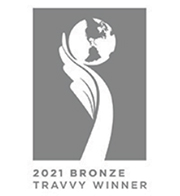Latest News
Monday, 21st March 2016
In General Japan News,
Japan's opposition parties put aside their differences to unite over a single issue.
The Japanese Communist Party (JCP) has announced it will be withdrawing nine of its candidates from the House of Councillors election. The move is part of an attempt by several of the opposition groups to present a united front against the ruling coalition.
It is possible that the JCP will pull another 11 out of the race for the same reason. This is a big step back from the 30 candidates that the party had intended to field in 32 single-member electoral districts.
A senior official for the Democratic Party of Japan, which is the country’s main opposition group, said that talks about unifying candidates are underway. It is expected that around 80 per cent of the districts will see politicians put forward in opposition under these cooperative circumstances.
The main aim of unifying the opposition in Japan is to scrap new security laws that were enforced by prime minister Shinzo Abe. The JCP and other opposition parties believe them to be unconstitutional and it is an issue they feel so strongly about they are prepared to work together for a common aim.
Since September 2015 when the laws came into effect, the role of Japan’s defence forces has changed dramatically. Should the opposition beat the ruling party and the rule be retracted, the forces would find their work abroad would return to a similar level to how it has been for most of the post-World War II period.
Although a detailed plan of the JCP’s withdrawals has not yet been issued, its leader, Kazuo Shii, confirmed that a considerable number of its candidates will step out of the race. Such a move is unusual in these elections and could shift Japanese politics in a new direction.
Mr Shii said: “We want to respond decisively for the cause of repealing the security-related legislation and restoring constitutionalism. There are pros and cons, so we'll set that aside for now and begin discussions on election cooperation.”
The upper house consists of 242 seats and 50 per cent of these get put up for election every three years. 73 of the 121 seats available will be chosen through the voting system in single and multiple-member electoral districts. The other 48 will be allocated via the party-list proportional representation process.
At present, a coalition between Abe’s Liberal Democratic Party and the Komeito Party has the majority in the upper house, giving it control. This is bolstered by a two-thirds majority in the House of Representatives, which consists of 475 seats and is the most powerful lower chamber of Japan’s Diet.
The House of Councillors election is due to be held in the summer.
 Australia
Australia
 USA
USA
 Inside Japan UK office
Inside Japan UK office Inside Japan US office
Inside Japan US office Inside Japan Australia office
Inside Japan Australia office Inside Japan - Japan office
Inside Japan - Japan office



























